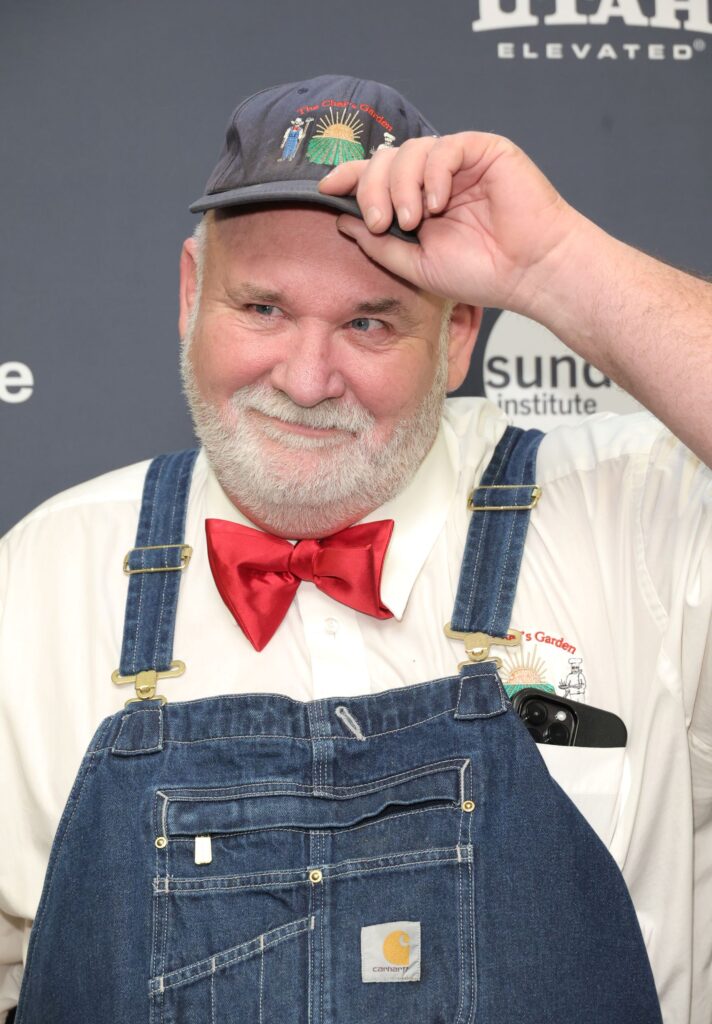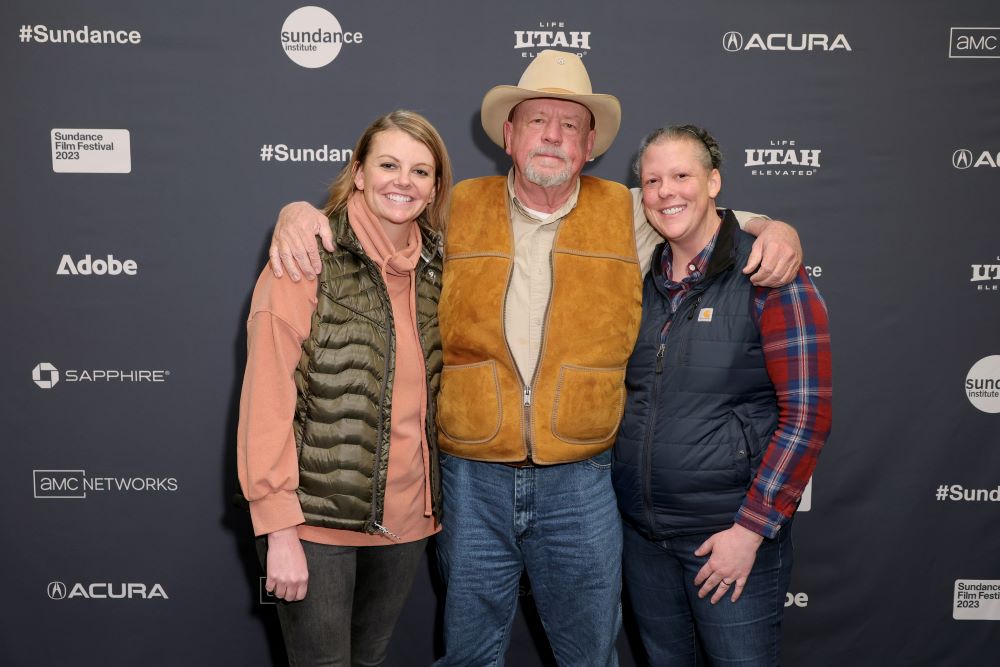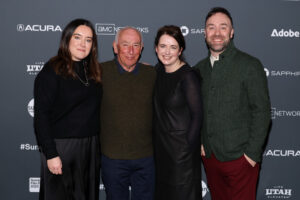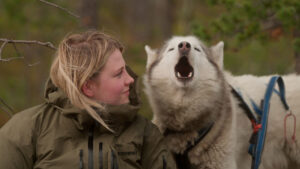Georgia farmers Will Harris and daughters Jenni Harris (right) and Jodi Harris (left) are featured in “Food and Country,” which premiered at the 2023 Sundance Film Festival. (Photo by Michael Loccisano)
By Vanessa Zimmer
What America needs today are men and women who love their work enough to cry over it.
That’s one takeaway from Food and Country, a warm, rich, and fascinating documentary by Laura Gabbert that premiered Monday, January 23, at the 2023 Sundance Film Festival.
The documentary asserts that Americans have adversely affected the economy and their own health since the 1950s by expecting their food to be cheap and easy. Convenient though they may be, canned and processed foods are not healthful. And the trend forced many family farming and ranching operations out of business, where large, industrial concerns took over.
Since the pandemic, it has gotten only worse. Farmers had to dump supplies they couldn’t get to market. The government’s stay-home admonitions meant many restaurants had to permanently close their doors.
Acclaimed, award-winning food writer Ruth Reichl reports from across the country — via teleconferencing — on struggling independent farmers and restaurateurs. Gabbert also weaves in details about Reichl’s own life and food experiences, beginning in a commune in Berkeley, California.
This is where we get to the crying part. And this is just one instance: Farmer Will Harris, 65, of Bluffton, Georgia, tears up when he argues that farming is not hard work. Now, roofing, “That’s hard-ass work.” Harris chokes up because he loves what he does, and he lives his vocation and legacy every day. Over a 20-year period, he converted to a more natural model and came to think of his farm as an organism, not a factory.
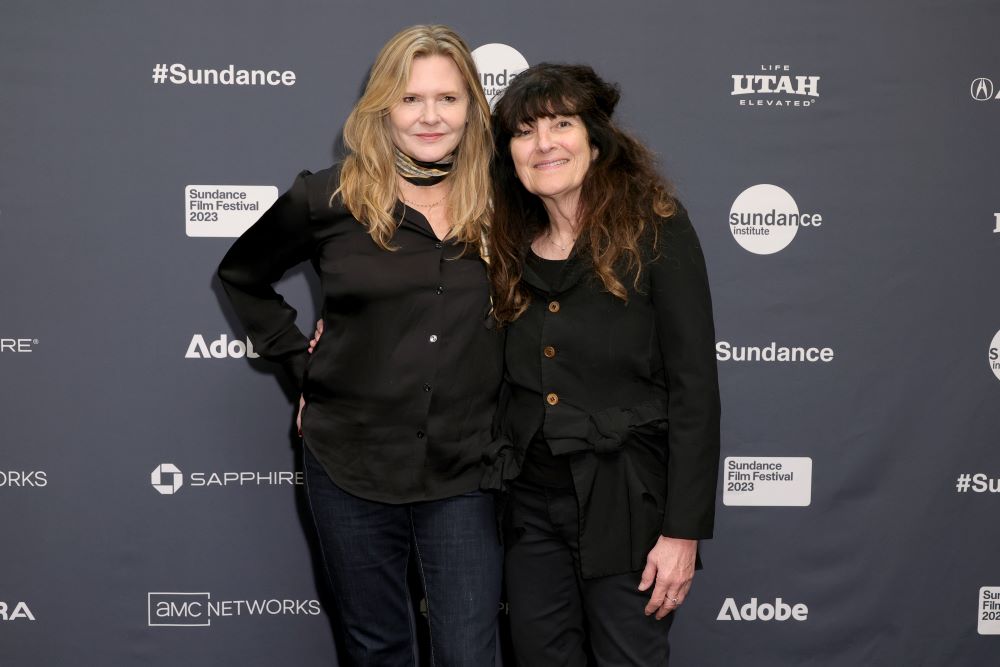
When a neighboring farm yielded to a renewable energy company, for example, Harris negotiated to flood the solar fields with sheep, eliminating the use of chemicals to control the weeds.
Harris, his two daughters, and the other voices representing America’s food suppliers in the documentary met Reichl in person for the first time this week at the Festival, Gabbert announced in the Q&A following the film — and Reichl beamed. The farmers and restaurateurs, plus a few members of the film team, stretched across the stage.
Reichl has reported on food for more than 50 years, and she was at the heart of this project (in more ways than one). “I just thought when COVID started, things might change for the better, or maybe for the worse,” Reichl recalls in the Q&A. “I just wanted to keep a record of it.” Over time, she developed warm relationships with her perseverant “subjects.”
Then Gabbert proposed making a documentary based on her reporting. It was March 2020. “Isn’t it too late?” Reichl remembers asking. “Laura said, ‘With a documentary, it’s always too late.’”
Gabbert originally thought the project would focus solely on the restaurant business. Reichl quickly convinced her the story was much bigger than that, that it should also embrace the farmers and ranchers.
While Harris has found success with his operation, others are not so lucky. The Big Four meatpackers make the most money and control the meat supply, according to the film, leaving ranchers to absorb losses and consumers to suffer interruptions in supply and inflated prices. Cattle rancher Steve Stratford, of Pratt, Kansas, calls for breaking up the Big Four, creating multiple, smaller meatpackers that are more nimble and less powerful.
There is a silver lining in all of this. In part because of the pandemic, food in the U.S. has become more than just sustenance, Reichl says in the film. It brings people together, sparking deeper relationships. Food is now as important as books, music, art, and film: And we all want it to be tasteful.
In the Bronx, Karen Washington has become an activist for urban farming, a dynamo in speaking about the value of fresh and locally grown food. Years ago, she started growing tomatoes and peppers in her backyard — and she noticed the tomatoes were bright red, not pink like those in the store, and had a sweet, intense flavor. She was hooked.
“When I bit into it, it just rocked my world,” she says.
